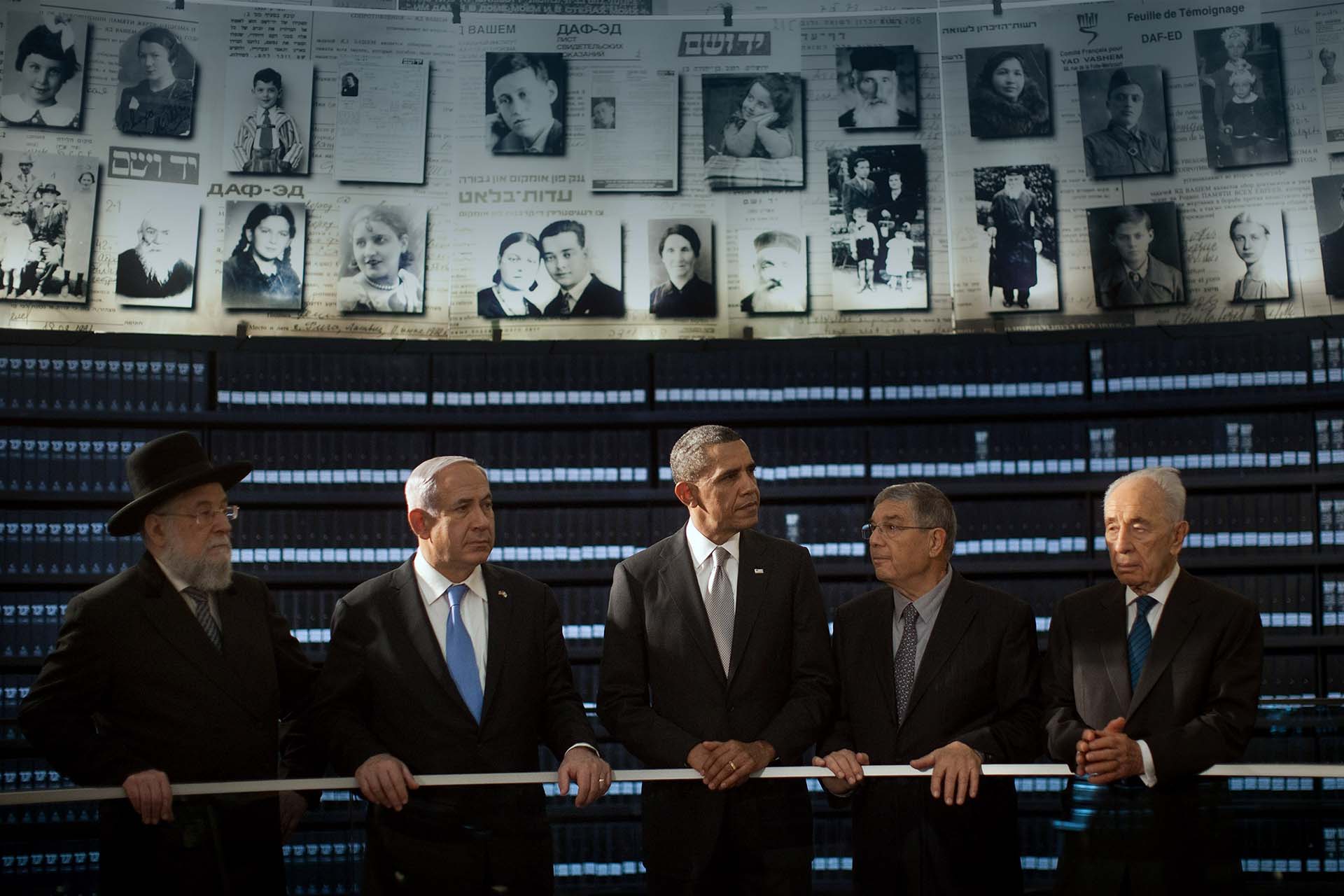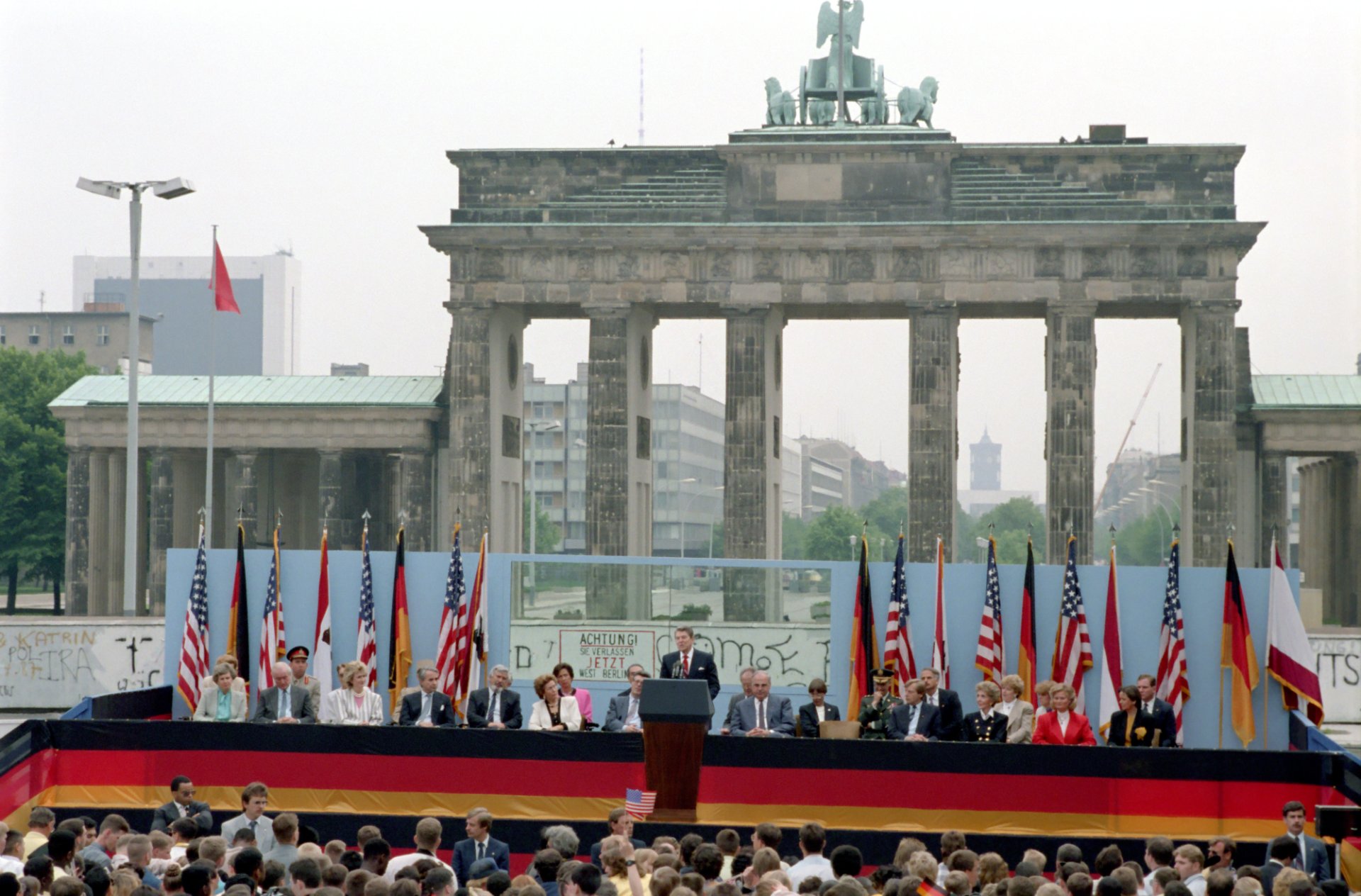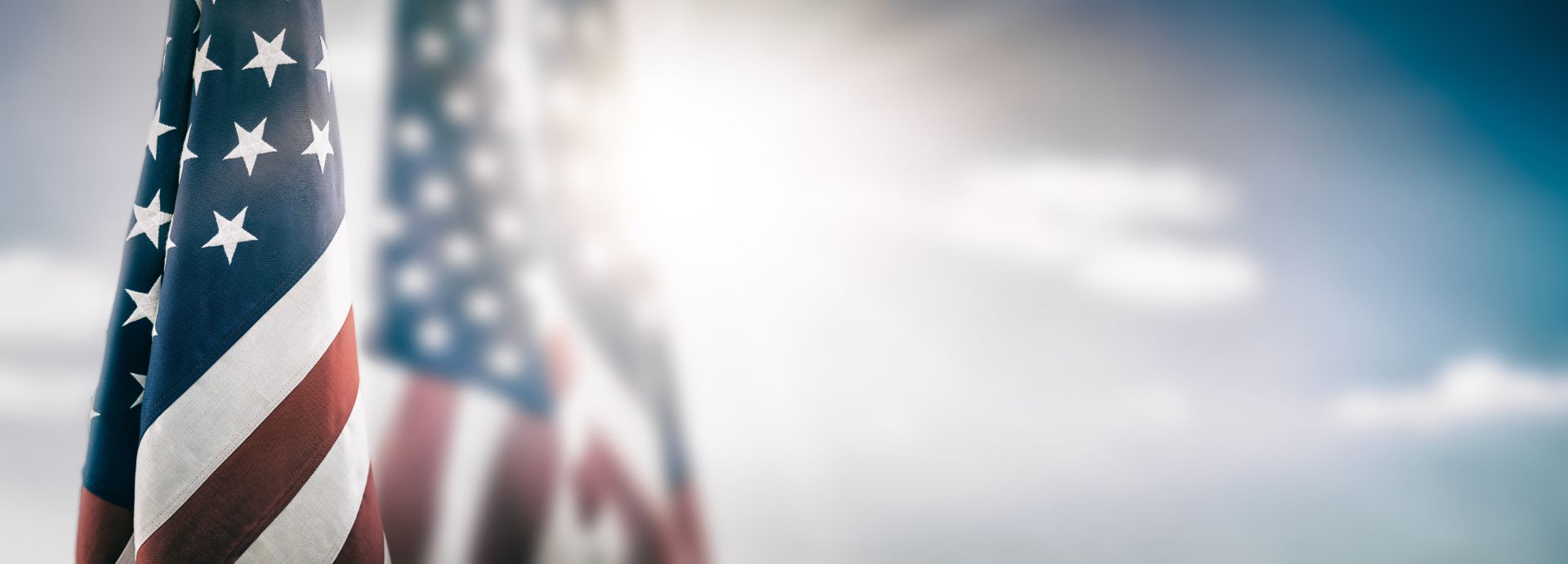
(Uriel Sinai / Stringer via Getty Images)
(L-R) Rabbi Yisrael Meir Lau, Israel’s Prime Minster Benjamin Netanyahu, Chairman of the Yad Vashem Directorate Avner Shalev and Israel’s President Shimon Peres.
Jerusalem, Israel – March 22, 2013 – U.S. President Barack Obama visits the Hall of Names at the Yad Vashem Holocaust Memorial museum.
President Roosevelt Delivering His Fireside Chat #6, September 30, 1934 Courtesy of the FDR Library
Address by President Harry S. Truman to the UN General Assembly
October 24, 1950
Address in New York City Before the United Nations General Assembly.
Mr. President, Mr. Secretary General, the people of the United Nations:
Five years ago today the Charter of the United Nations came into force. By virtue of that event, October 24, 1945, became a great day in the history of the world.
Long before that day, the idea of an association of nations to keep the peace had lived as a dream in the hearts and minds of men. Woodrow Wilson was the author of that idea in our time. The organization that was brought into being on October 24, 1945, represents our greatest advance toward making that dream a reality.
The United Nations was born out of an agony of war–the most terrible war in history. Those who drew up the charter really had less to do with the creation of the United Nations than the millions who fought and died in that war. We who work to carry out its great principles should always remember that this organization owes its existence to the blood and sacrifice of millions of men and women. It is built out of their hopes for peace and justice.

President Roosevelt Delivering His Fireside Chat #6, September 30, 1934 Courtesy of the FDR Library
Ronald Reagan, address at the Brandenburg Gate, June 12, 1987
In the 1950s—In the 1950s Khrushchev predicted: “We will bury you.” But in the West today, we see a free world that has achieved a level of prosperity and well-being unprecedented in all human history. In the Communist world, we see failure, technological backwardness, declining standards of health, even want of the most basic kind—too little food. Even today, the Soviet Union still cannot feed itself. After these four decades, then, there stands before the entire world one great and inescapable conclusion: Freedom leads to prosperity. Freedom replaces the ancient hatreds among the nations with comity and peace. Freedom is the victor….Behind me stands a wall that encircles the free sectors of this city, part of a vast system of barriers that divides the entire continent of Europe. . . . Standing before the Brandenburg Gate, every man is a German, separated from his fellow men. Every man is a Berliner, forced to look upon a scar. . . . As long as this gate is closed, as long as this scar of a wall is permitted to stand, it is not the German question alone that remains open, but the question of freedom for all mankind. . . .
General Secretary Gorbachev, if you seek peace, if you seek prosperity for the Soviet Union and Eastern Europe, if you seek liberalization, come here to this gate.
Mr. Gorbachev, open this gate!
Mr. Gorbachev, tear down this wall!
Rabbi Lord Jonathan Sacks, 2002
Chief Rabbi the United Kingdom and Commonwealth
Remarks by Secretary of Defense Lloyd J. Austin III at the NATO Public Forum
July 10, 2024, WASHINGTON
“On April 4, 1949, those 12 democracies came together in the wake of two world wars and at the dawn of a new Cold War. They all remembered, as President Truman put it, “the sickening blow of unprovoked aggression.”
So they vowed to stand together for their collective defense and to safeguard freedom and democracy across Europe and North America. They made a solemn commitment, declaring that an armed attack against one ally would be considered “an attack against them all.”
Now that commitment was enshrined in Article Five of the North Atlantic Treaty. It was the foundation of NATO. And it still is.
On that bedrock, we have built the strongest and most successful defensive alliance in human history. Throughout the Cold War, NATO deterred Soviet aggression against Western Europe—and prevented a third world war. In the 1990s, NATO used air power to stop ethnic cleansing in Bosnia and Herzegovina and in Kosovo. And the day after September 11, 2001, when al-Qaeda terrorists attacked our country, including slamming a plane into the Pentagon, NATO invoked Article Five for the first and only time in its history.
“The best way to enhance freedom in other lands is to demonstrate here that our democratic system is worthy of emulation.”
President Jimmy Carter

Remarks by President Obama, Yad Vashem, March 22, 2013
THE PRESIDENT: “Unto them I will give my house and within my walls a memorial and a name…an everlasting name that shall not be cut off.”
President Peres, Prime Minister Netanyahu, Chairman Shalev, Rabbi Lau -- thank you for sharing this house, this memorial, with me today. And thank you to the people of Israel for preserving the names of the millions taken from us, of blessed memory -- names that shall never be forgotten.
This is my second visit to this living memorial. Since then, I’ve walked among the barbed wire and guard towers of Buchenwald. Rabbi Lau told me of his time there, and we reminisced about our good friend, Elie Wiesel, and the memories that he shared with me. I have stood in the old Warsaw ghetto, with survivors who would not go quietly. But nothing equals the wrenching power of this sacred place, where the totality of the Shoah is told. We could come here a thousand times, and each time our hearts would break.
For here we see the depravity to which man can sink; the barbarism that unfolds when we begin to see our fellow human beings as somehow less than us, less worthy of dignity and of life. We see how evil can, for a moment in time, triumph when good people do nothing, and how silence abetted a crime unique in human history.
Here we see their faces and we hear their voices. We look upon the objects of their lives -- the art that they created, the prayer books that they carried. We see that even as they had hate etched into their arms, they were not numbers. They were men and women and children -- so many children -- sent to their deaths because of who they were, how they prayed, or who they loved.
And yet, here, alongside man’s capacity for evil, we also are reminded of man’s capacity for good -- the rescuers, the Righteous Among the Nations who refused to be bystanders. And in their noble acts of courage, we see how this place, this accounting of horror, is, in the end, a source of hope.
For here we learn that we are never powerless. In our lives we always have choices. To succumb to our worst instincts or to summon the better angels of our nature. To be indifferent to suffering to wherever it may be, whoever it may be visited upon, or to display the empathy that is at the core of our humanity. We have the choice to acquiesce to evil or make real our solemn vow -- “never again.” We have the choice to ignore what happens to others, or to act on behalf of others and to continually examine in ourselves whatever dark places there may be that might lead to such actions or inactions. This is our obligation -- not simply to bear witness, but to act.
For us, in our time, this means confronting bigotry and hatred in all of its forms, racism, especially anti-Semitism. None of that has a place in the civilized world -- not in the classrooms of children; not in the corridors of power. And let us never forget the link between the two. For our sons and daughters are not born to hate, they are taught to hate. So let us fill their young hearts with the same understanding and compassion that we hope others have for them.
Here we hope. Because after you walk through these halls, after you pass through the darkness, there is light -- a glorious view of the Jerusalem Forest, with the sun shining over the historic homeland of the Jewish people; a fulfillment of the prophecy: “you shall live again…upon your own soil.” Here, on your ancient land, let it be said for all the world to hear: The State of Israel does not exist because of the Holocaust. But with the survival of a strong Jewish State of Israel, such a Holocaust will never happen again.
Here we pray that we all can be better; that we can all grow, like the sapling near the Children’s Memorial -- a sapling from a chestnut tree that Anne Frank could see from her window. The last time she described it in her diary, she wrote: “Our chestnut tree is in full bloom. It’s covered with leaves and is even more beautiful than last year.” That’s a reminder of who we can be. But we have to work for it. We have to work for it here in Israel. We have to work for it in America. We have to work for it around the world -- to tend the light and the brightness as opposed to our worst instincts.
So may God bless the memory of the millions. May their souls be bound up in the bond of eternal life. And may each spring bring a full bloom even more beautiful than the last.





